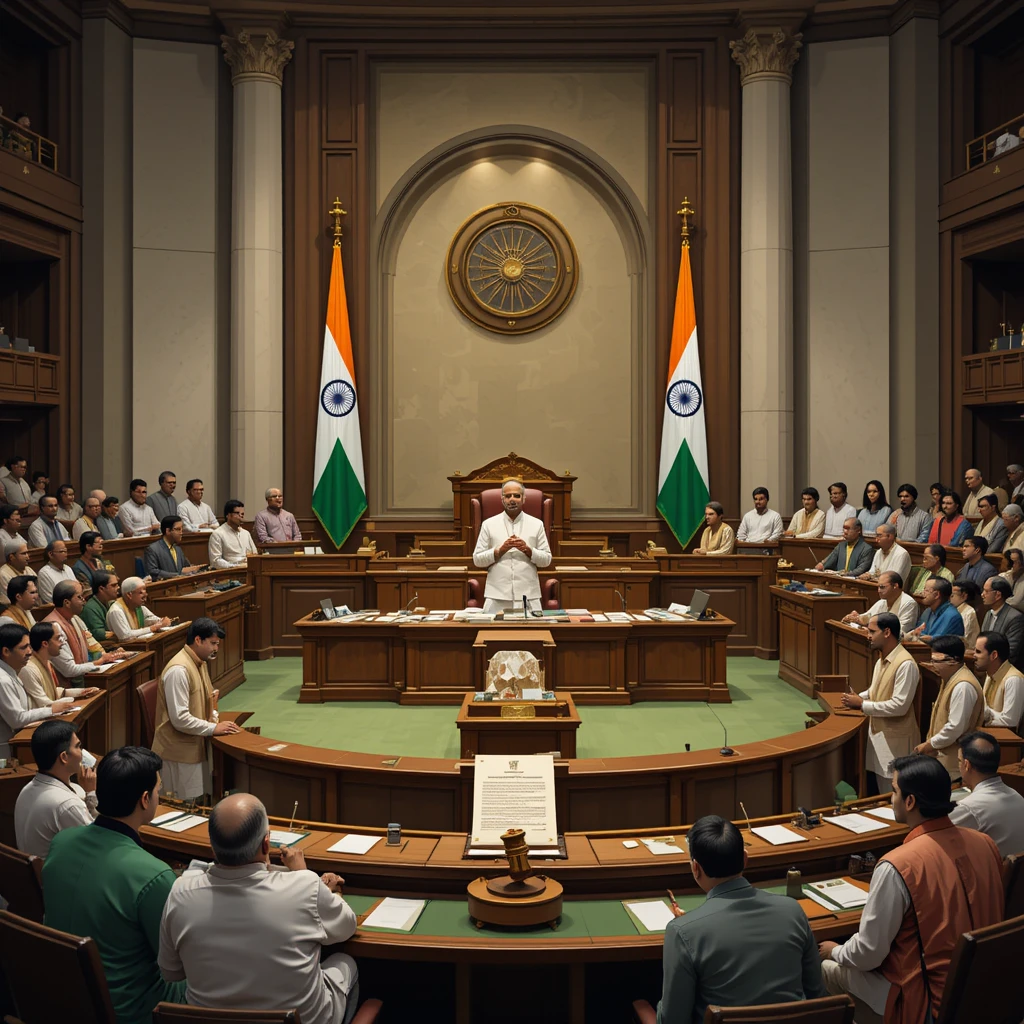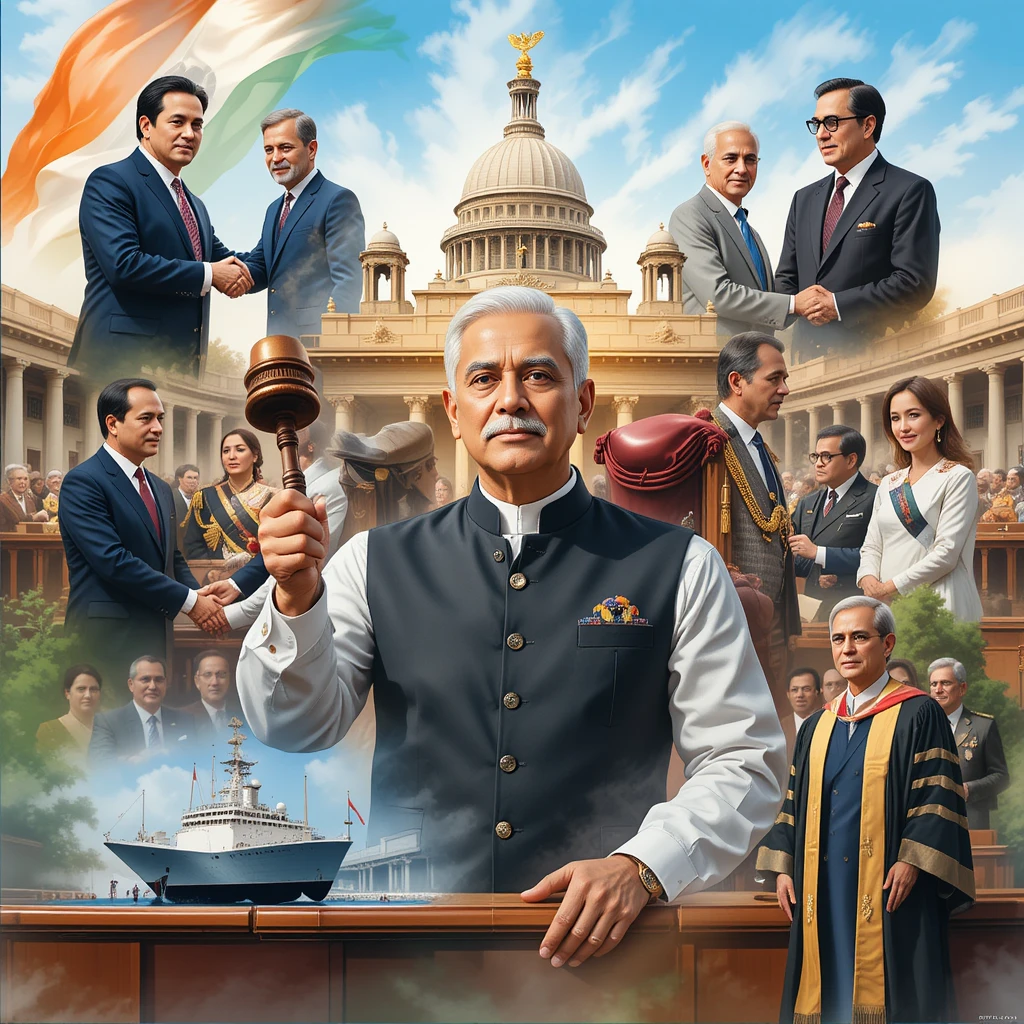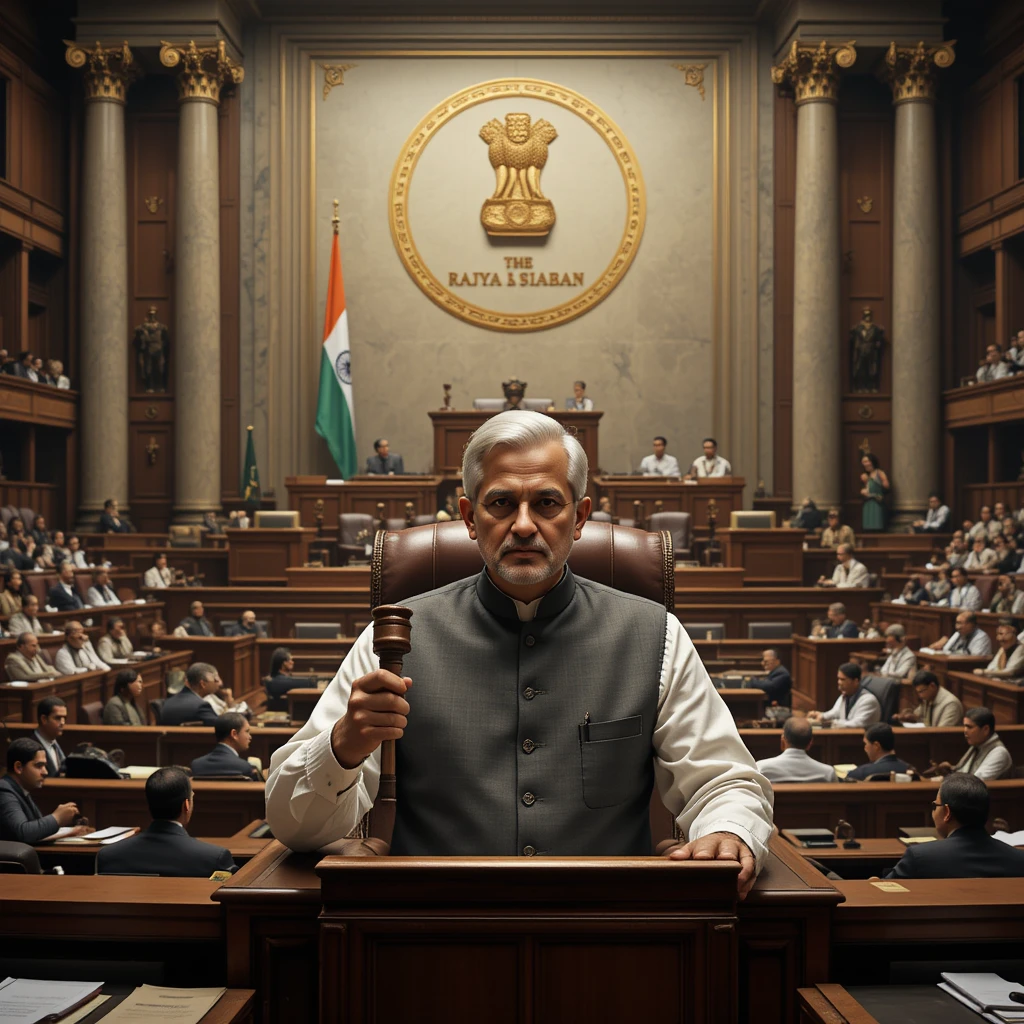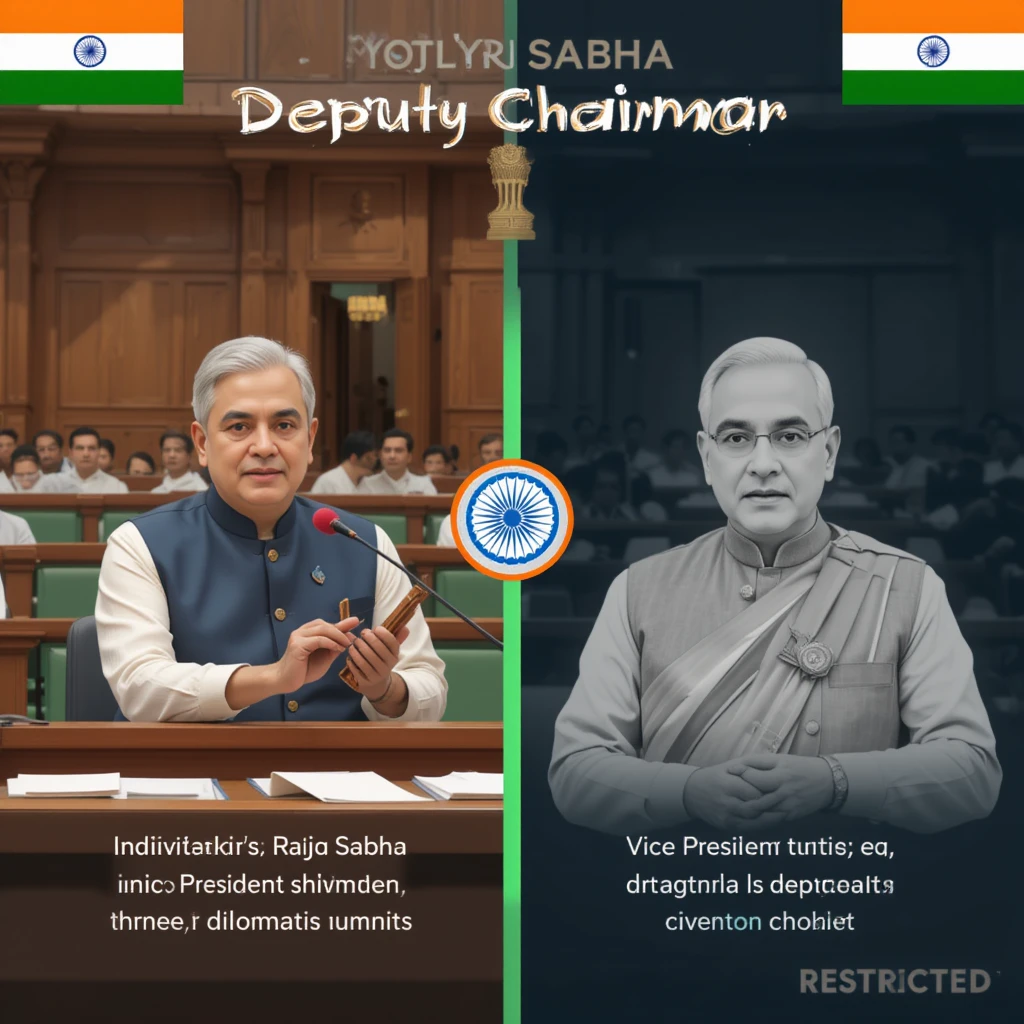On July 21, 2025, Vice President Jagdeep Dhankhar resigned from his office, citing health concerns, triggering a rare constitutional event in India’s political history. As the 14th Vice President and only the third to resign mid-term, following V.V. Giri and R. Venkataraman, Dhankhar’s exit has raised critical questions about the functioning of the Vice President’s office, the role of the Deputy Chairman of the Rajya Sabha in the interim, and the constitutional challenges arising from the vacancy. This article provides a comprehensive analysis of the constitutional provisions governing the resignation, the duties of the Vice President, the extent to which the Deputy Chairman can assume these responsibilities, and the potential challenges posed by the absence of a Vice President.

Table of Contents
Context of Jagdeep Dhankhar’s Resignation
Jagdeep Dhankhar assumed office as Vice President on August 11, 2022, succeeding M. Venkaiah Naidu. His tenure was marked by his active role as the ex-officio Chairman of the Rajya Sabha, where he navigated contentious parliamentary sessions and faced significant opposition, culminating in a no-confidence motion against him in December 2024, which was rejected by Deputy Chairman Harivansh Narayan Singh. Dhankhar’s resignation, submitted to President Droupadi Murmu under Article 67(a) of the Indian Constitution, was accepted on July 22, 2025. In his resignation letter, Dhankhar cited health issues, specifically referencing a recent angioplasty procedure. However, political speculation, fueled by opposition leaders like Congress MP Jairam Ramesh, suggests underlying tensions, including Dhankhar’s dissatisfaction with the absence of key ministers at a Business Advisory Committee meeting and his handling of an impeachment motion against Justice Yashwant Varma on the day of his resignation. This article examines the constitutional implications of this development.
Constitutional Provisions for Vice Presidential Resignation
Article 67(a) of the Indian Constitution governs the resignation of the Vice President, stating that the Vice President may resign by addressing a written resignation to the President, which takes effect upon acceptance. Dhankhar’s resignation followed this process, with no additional approval required. Article 68(1) mandates that an election to fill the vacancy caused by resignation, death, or removal must be held “as soon as possible.” Unlike the presidential election, which has a six-month deadline under Article 62, no specific timeline is prescribed for the Vice-Presidential election. The election is conducted by the Election Commission of India under the Presidential and Vice-Presidential Elections Act, 1952, with an electoral college comprising members of both Houses of Parliament (Lok Sabha and Rajya Sabha, including nominated members) using a proportional representation system with a single transferable vote.

Duties of the Vice President
The Vice President of India holds a pivotal constitutional office with legislative, executive, and ceremonial responsibilities. These duties, rooted in the Constitution and parliamentary conventions, are critical to India’s democratic framework. Below is a detailed enumeration of the Vice President’s responsibilities:
- Ex-Officio Chairman of the Rajya Sabha (Article 64):
- The Vice President serves as the ex-officio Chairman of the Rajya Sabha, presiding over its proceedings, maintaining decorum, and ensuring adherence to parliamentary rules under the Rules of Procedure and Conduct of Business in the Rajya Sabha.
- They rule on procedural matters, such as the admissibility of motions, questions, and bills, and have the authority to suspend or adjourn sessions in case of disruptions.
- In the event of a tie in voting, the Chairman casts a deciding vote under Article 100(1).
- Example: Dhankhar’s tenure saw him addressing contentious debates, such as those during the 2024 Monsoon Session, where he managed opposition protests over legislative agendas.

- Acting President (Article 65):
- The Vice President assumes the role of Acting President when the President’s office is vacant due to death, resignation, removal, or temporary absence/illness, until a new President is elected (within six months, as per Article 62).
- As Acting President, the Vice President exercises all presidential powers, including acting as the Supreme Commander of the Armed Forces, granting pardons under Article 72, and assenting to bills under Article 111.
- Historical precedent: V.V. Giri acted as President in 1969 following President Zakir Husain’s death.
- Judicial Oversight in Impeachment Proceedings:
- As Chairman of the Rajya Sabha, the Vice President plays a key role in initiating impeachment proceedings against Supreme Court or High Court judges under Article 124(4) and the Judges (Inquiry) Act, 1968. They receive notices of motion for removal and oversee the formation of an investigative committee in collaboration with the Lok Sabha Speaker.
- Example: On July 21, 2025, Dhankhar accepted a notice signed by over 50 opposition MPs proposing the impeachment of Justice Yashwant Varma, directing the Secretary General to proceed.
- Ceremonial and Diplomatic Functions:
- The Vice President represents India at international forums, such as summits and bilateral engagements. For instance, Dhankhar attended the ASEAN-India Commemorative Summit in Cambodia in 2022.
- They participate in ceremonial events, such as addressing joint sessions of Parliament, launching national initiatives, and christening naval vessels (e.g., Dhankhar christened the frigate Mahendragiri in 2023).
- The Vice President serves as the ex-officio Chancellor of institutions like Panjab University and the University of Delhi, and as Visitor of Makhanlal National University, influencing academic governance.
- Additional Duties:
- Under Article 70, the President may delegate additional functions to the Vice President, enhancing their role in national governance.
- The Vice President often engages in public discourse on constitutional and national issues, as seen in Dhankhar’s speeches on judicial accountability and the basic structure doctrine.
Role of the Deputy Chairman During a Vice-Presidential Vacancy
In the absence of the Vice President, the Deputy Chairman of the Rajya Sabha assumes key responsibilities, primarily related to the functioning of the Upper House. Harivansh Narayan Singh, the current Deputy Chairman since August 2020, has taken over as acting Chairman of the Rajya Sabha following Dhankhar’s resignation. The constitutional framework governing the Deputy Chairman’s role includes:
- Presiding Over Rajya Sabha (Article 91):
- Article 91 empowers the Deputy Chairman, or another member authorized by the President, to perform the duties of the Chairman when the Vice President’s office is vacant or when the Vice President is acting as President.
- The Deputy Chairman chairs sessions, rules on procedural matters, maintains order, and casts a deciding vote in case of a tie. For example, on July 22, 2025, Harivansh presided over a tumultuous Rajya Sabha session marked by adjournments due to opposition protests.

- Election of the Deputy Chairman (Article 89(2)):
- The Deputy Chairman is elected by the Rajya Sabha from among its members under Article 89(2), ensuring that the position is held by an experienced parliamentarian capable of managing legislative proceedings.
- Limitations of the Deputy Chairman’s Role:
- The Deputy Chairman’s authority is strictly limited to the legislative functions of the Rajya Sabha. They cannot perform the Vice President’s other constitutional duties, such as acting as President under Article 65, representing India diplomatically, or serving as Chancellor of universities.
- In the event of a presidential vacancy, the Constitution does not designate the Deputy Chairman as Acting President. Instead, the Chief Justice of India (CJI) may assume this role under the President (Discharge of Functions) Act, 1969, as seen in 1969 when CJI Mohammad Hidayatullah acted as President.
- Ceremonial and diplomatic roles of the Vice President remain unaddressed unless delegated by the President under Article 70.
Duties the Deputy Chairman Can and Cannot Perform
- Duties the Deputy Chairman Can Perform:
- Presiding over Rajya Sabha sessions, including managing debates, ruling on motions, and maintaining order.
- Casting a deciding vote in case of a tie in the Rajya Sabha.
- Overseeing procedural aspects of impeachment motions against judges, such as coordinating with the Lok Sabha Speaker to form an investigative committee.
- Duties the Deputy Chairman Cannot Perform:
- Acting as President under Article 65 in the event of a presidential vacancy.
- Representing India in international forums or performing ceremonial roles, such as addressing joint sessions or christening naval vessels.
- Serving as Chancellor or Visitor of universities, unless explicitly delegated by the President.
- Exercising any delegated functions under Article 70 unless specifically authorized.

Constitutional Challenges Arising from the Vacancy
Dhankhar’s resignation presents several constitutional and practical challenges, particularly given the absence of a mechanism for an acting Vice President and the politically charged context of the resignation. These challenges include:
- Lack of an Acting Vice President:
- The Indian Constitution does not provide for an acting Vice President during a vacancy, unlike the provision for the President under Article 65. This creates a gap in the performance of non-legislative duties, such as acting as President or fulfilling ceremonial roles.
- If the President’s office becomes vacant, the CJI would act as President, but this does not address other Vice-Presidential functions, potentially disrupting the constitutional hierarchy.
- Uncertainty in Election Timeline:
- Article 68(1)’s requirement for an election “as soon as possible” lacks a specific deadline, unlike the six-month period for presidential elections. Political disagreements, as evidenced by opposition calls for a “non-partisan” candidate, could delay the process.
- The NDA’s majority in the electoral college (approximately 293 Lok Sabha seats and a strong Rajya Sabha presence) gives it an advantage, but opposition demands for transparency may complicate candidate selection.
- Judicial Impeachment Proceedings:
- Dhankhar’s resignation coincided with his acceptance of an impeachment motion against Justice Yashwant Varma, raising questions about the continuity of such processes. The Deputy Chairman can oversee procedural aspects, but their authority may be perceived as less definitive, potentially affecting the impartiality and pace of the investigation.
- Rajya Sabha Disruptions:
- The Rajya Sabha’s Monsoon Session on July 22, 2025, saw frequent adjournments due to opposition protests over issues like Operation Sindoor and electoral roll revisions in Bihar. The Deputy Chairman’s ability to manage a polarized House may be challenged, especially given perceptions of partisanship, as seen in the opposition’s earlier criticism of Dhankhar.
- Ceremonial and Diplomatic Gaps:
- The Vice President’s ceremonial and diplomatic roles, such as representing India abroad or serving as Chancellor of universities, cannot be performed by the Deputy Chairman unless delegated by the President. This may lead to a temporary suspension of these functions, affecting India’s international engagements and institutional governance.
Interim Arrangements and Future Outlook
Harivansh Narayan Singh, as Deputy Chairman, has assumed the role of acting Chairman of the Rajya Sabha, ensuring continuity in legislative proceedings. The Election Commission is expected to announce the schedule for a new Vice-Presidential election soon, potentially by September 2025, with the new Vice President serving a full five-year term. Harivansh, a seasoned parliamentarian and Janata Dal (United) MP, is a leading candidate, given his experience and government support. Other potential nominees include senior BJP leaders or governors, with the NDA likely prioritizing a candidate to restore stability.
Conclusion
The resignation of Vice President Jagdeep Dhankhar on July 21, 2025, has highlighted both the strengths and gaps in India’s constitutional framework. While Article 91 enables the Deputy Chairman to manage Rajya Sabha proceedings, the absence of a provision for an acting Vice President leaves critical duties—such as acting as President, overseeing judicial impeachments, and performing ceremonial roles—unaddressed. This creates constitutional challenges, including potential disruptions in the executive hierarchy, delays in the election process, and difficulties in maintaining legislative stability. As India navigates this transition, the Deputy Chairman’s role will be crucial in ensuring parliamentary continuity, while the swift conduct of a Vice-Presidential election will be essential to restoring the full functionality of this vital constitutional office.




